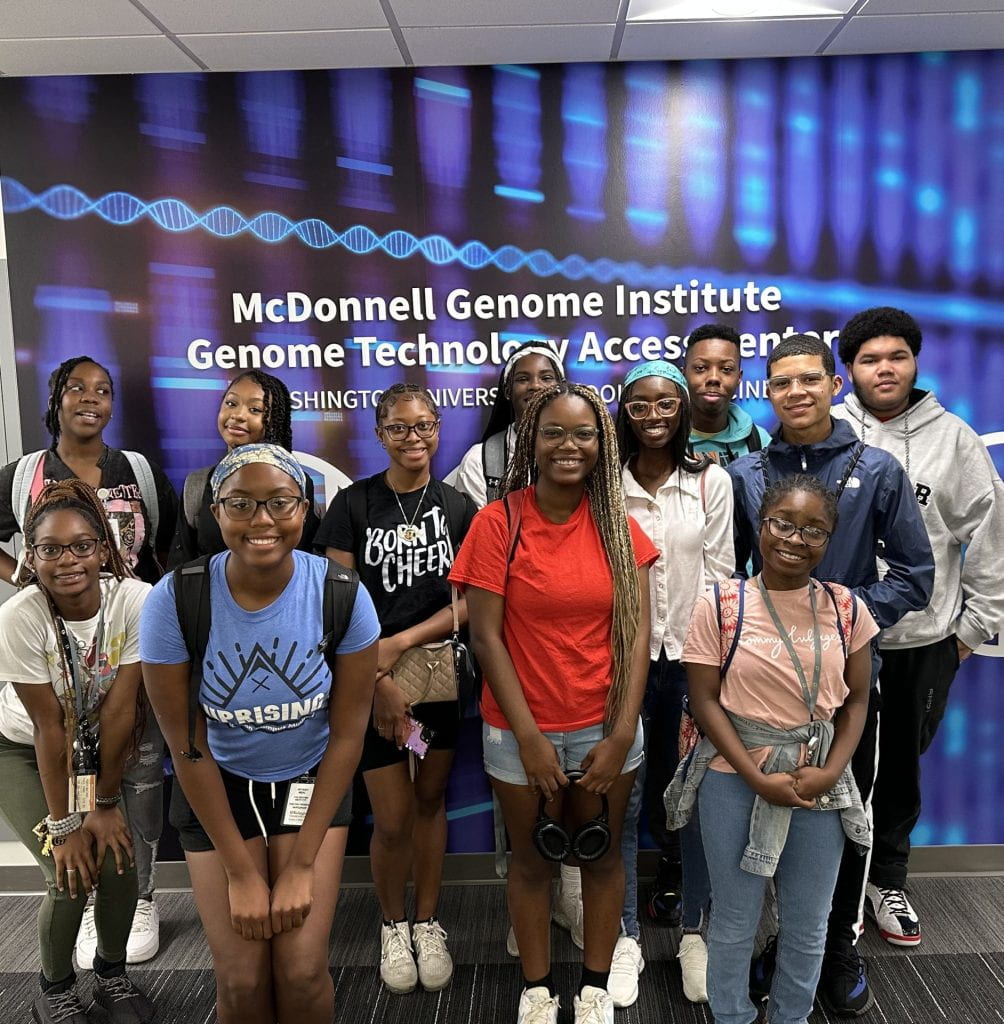
The Science Education Partnership Award (SEPA) program provides funding for pre-K through 12 grade projects to increase student involvement in STEM (science, technology, engineering, and math) fields. The main focus is to engage students at a young age to increase the number of students later pursuing degrees and careers in STEM fields, especially students who are traditionally underrepresented in those fields.
There are three main components to the SEPA program at MGI:
- Academic year tutoring
- Washington University undergraduate and graduate students work one on one or in small groups with local students to cover topics specific to the needs of students.
- ACT Tutoring on Saturdays for our partner school.
- Short-term genomics classes
- Run by a teaching team of graduate students, these classes last a week or two and vary by semester. The fall 2021 theme was forensics.
- Summer research project
- Students work on a research project for 4 weeks with guidance and mentoring from WashU graduate students.
- The Summer 2023 project was about microbial communities and their links with term and preterm births in pregnant patients. Additionally, students looked at data from guinea pigs as a model organism for understanding preterm births.
- Our summer 2024 program will run June 3-21st and will once again focus on analyzing microbiomes of pregnant patients to learn more about preterm birth.
- Applications for the 2024 program are now closed. Please check back in the fall for more information the 2025 program.
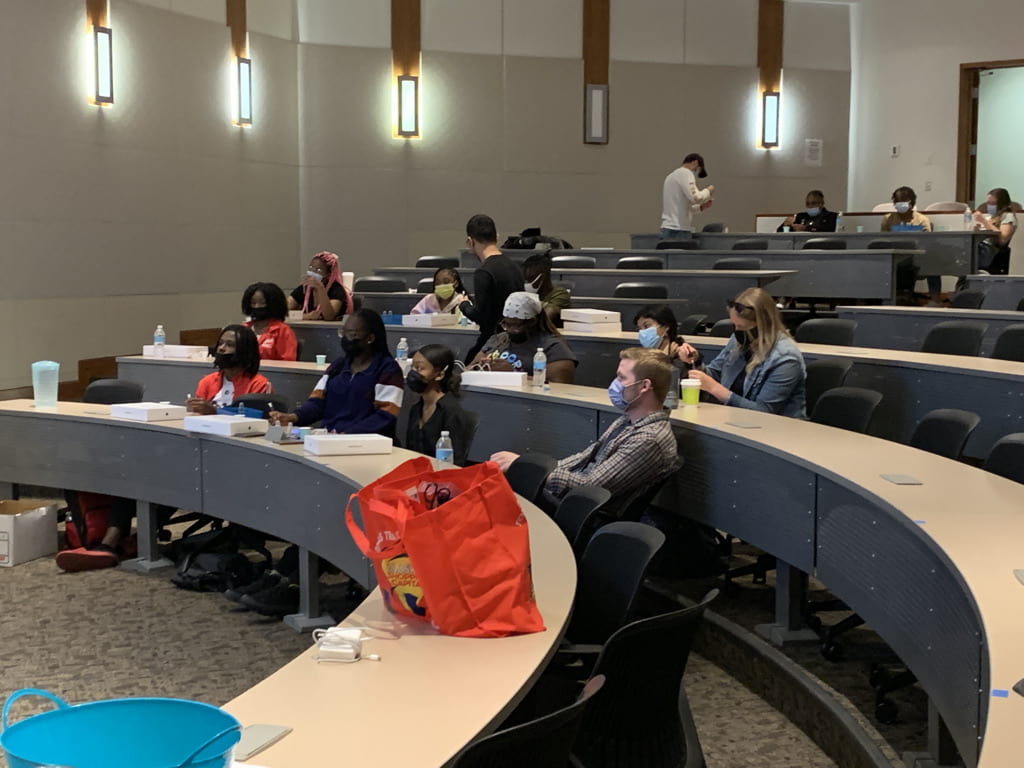
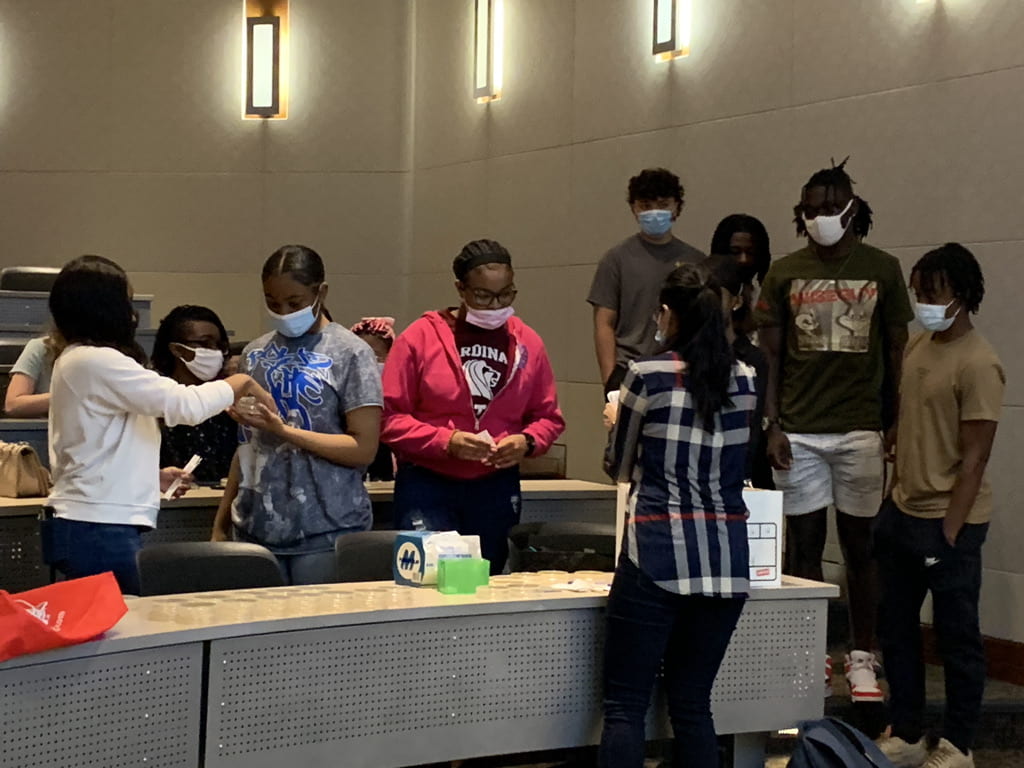
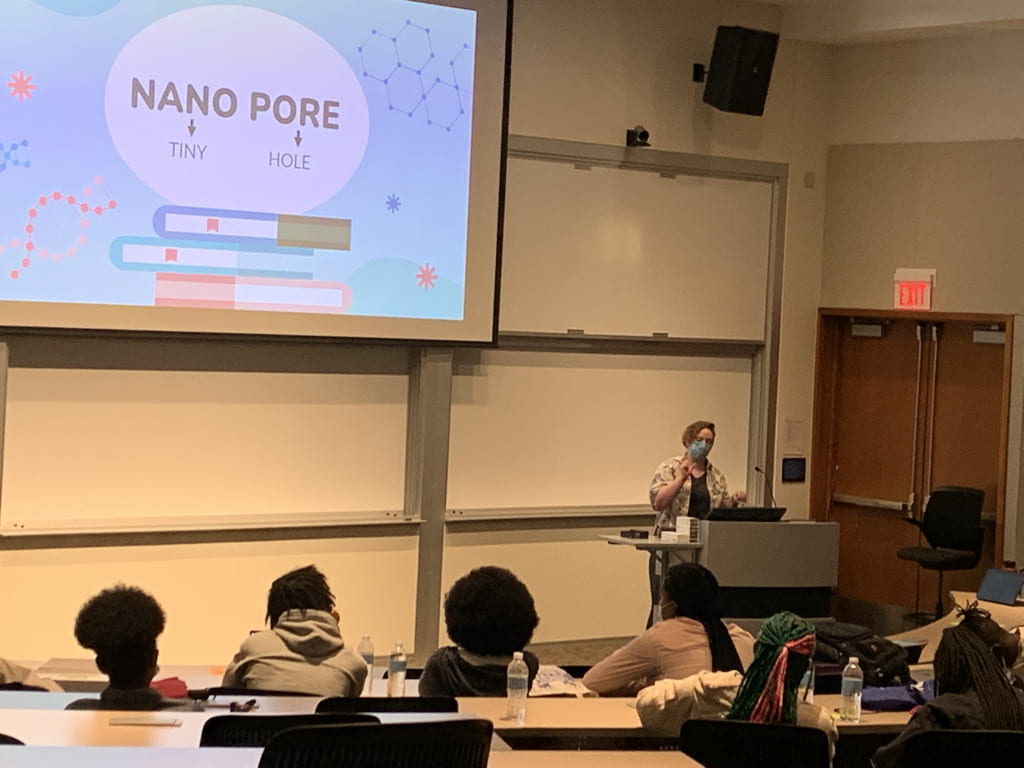
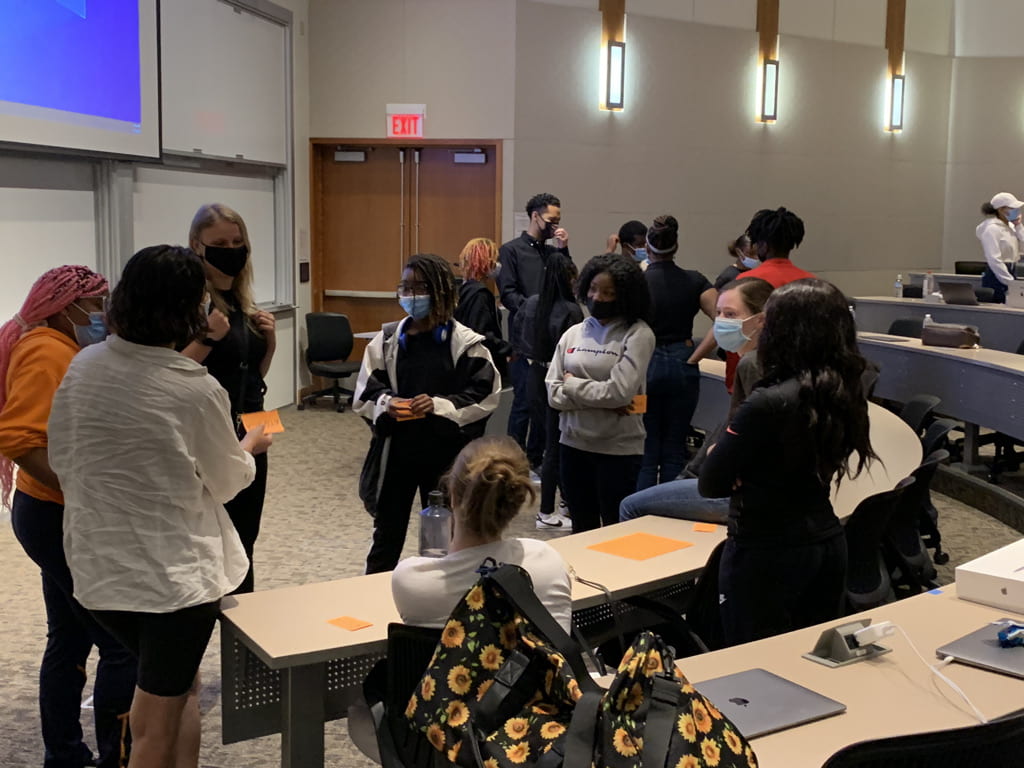
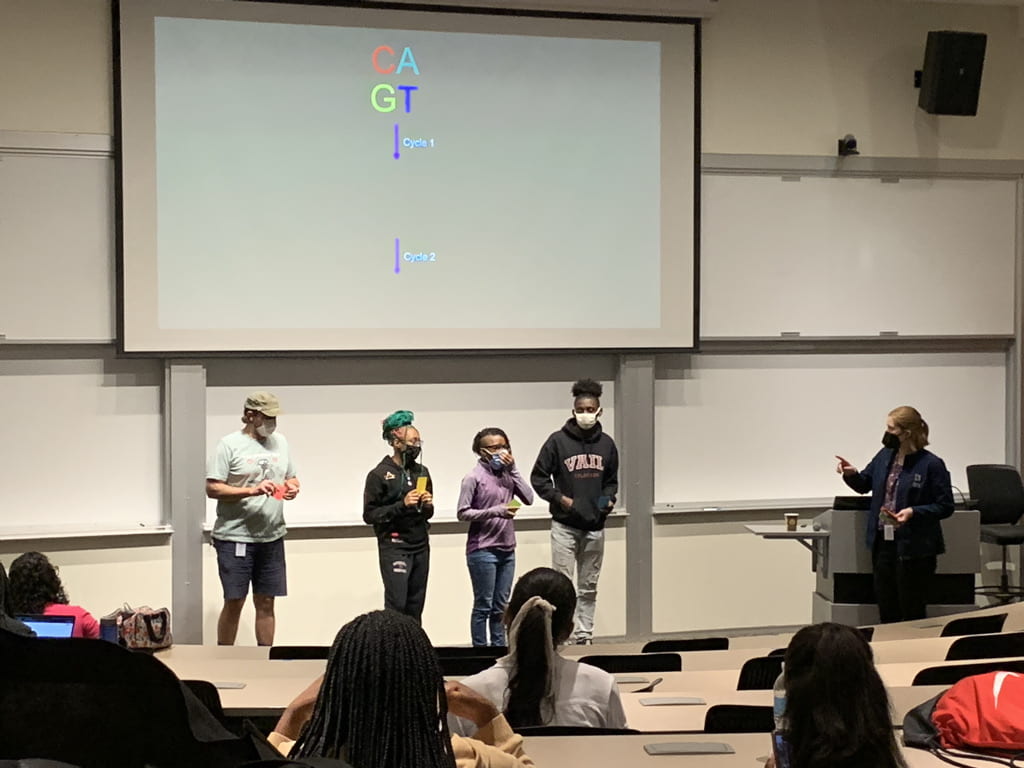
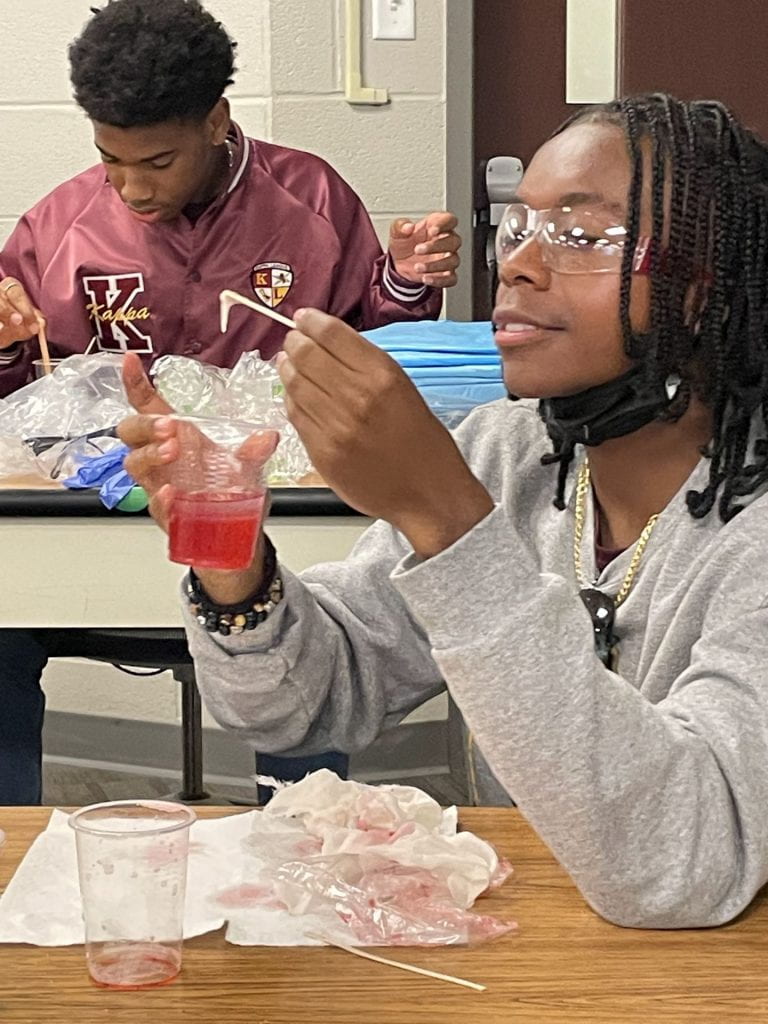
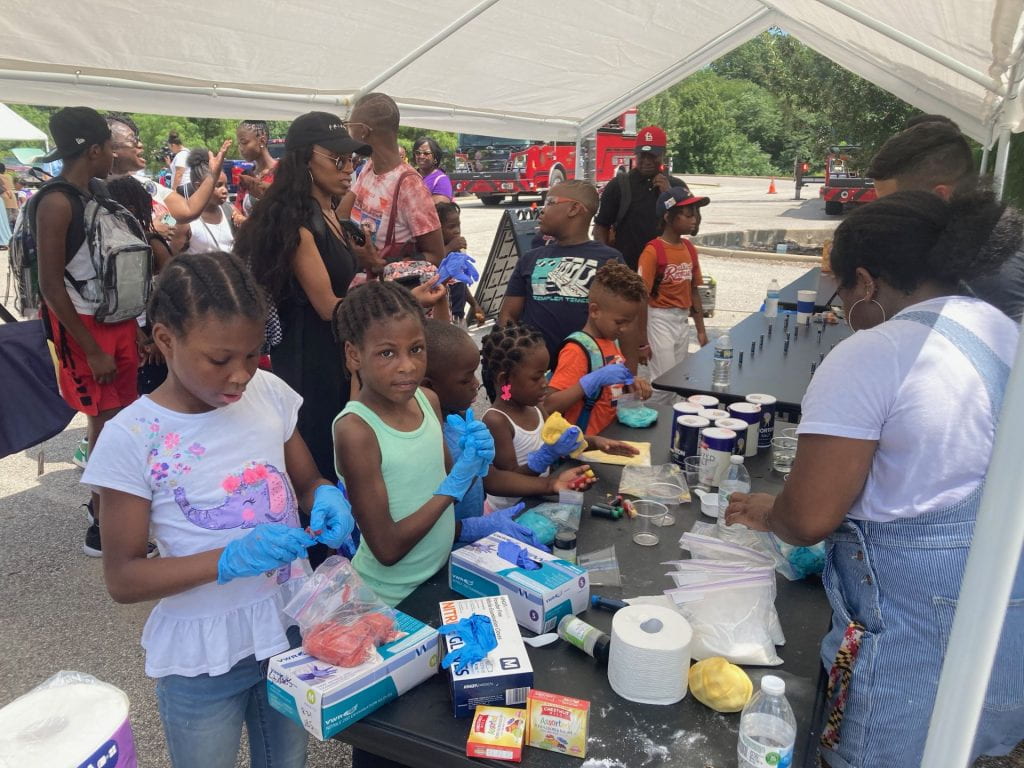
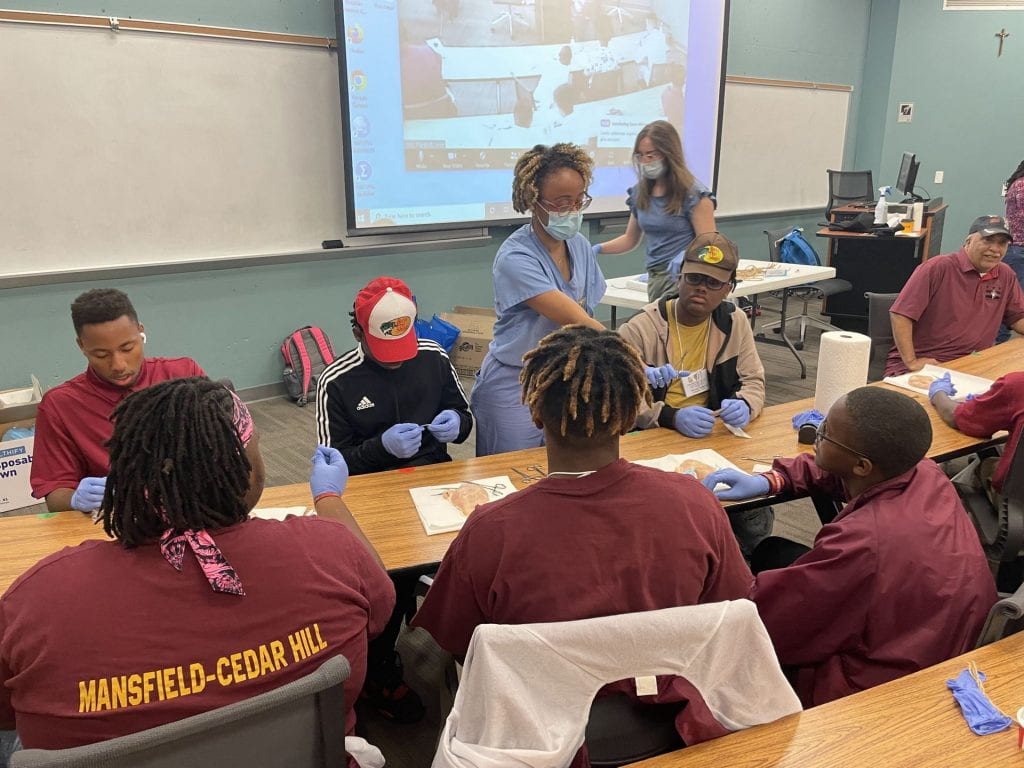
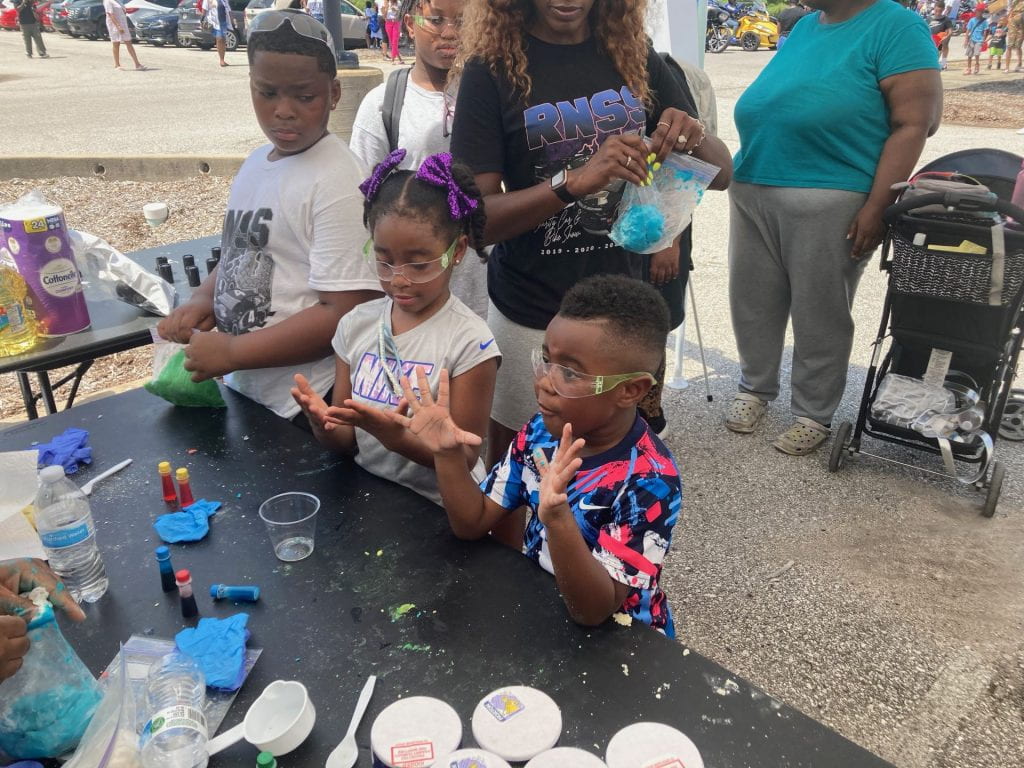
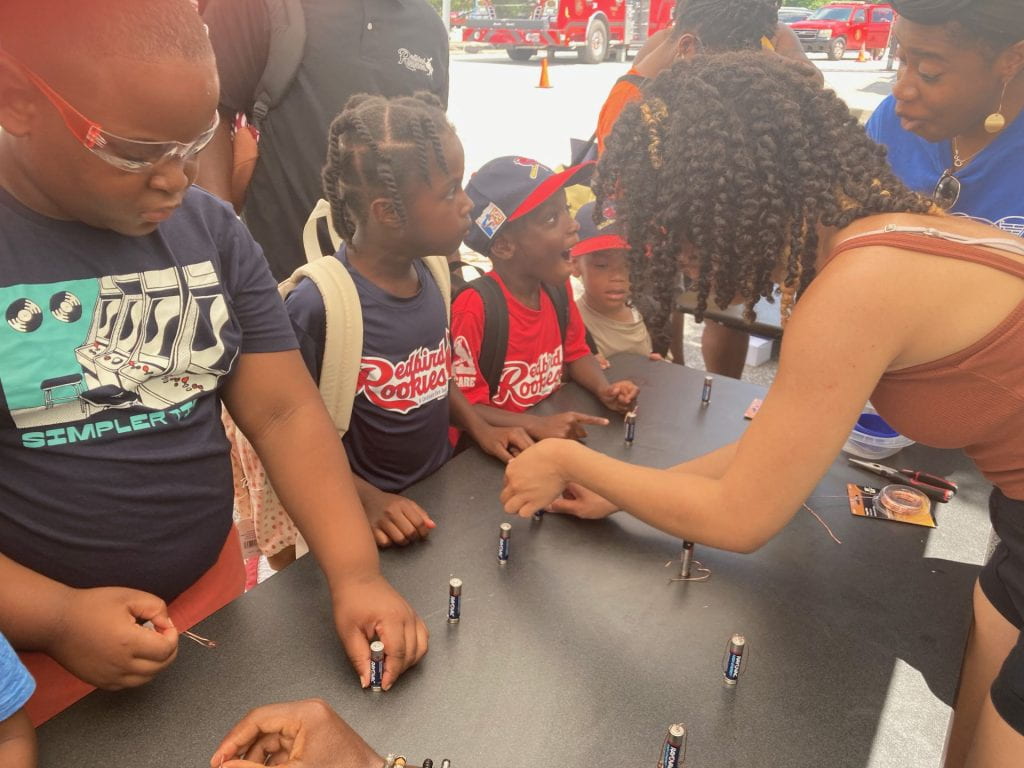
Other activities include hands-on experiments at community events, campus tours, graduate student panels, and more. Interested in working with us? Contact us below.
Program Updates
Another successful spring and summer are in the books! This spring we had almost 60 local students participate in our tutoring programs with over 30 of our graduate and undergraduate students helping them with a wide range of topics.
This June we had 29 high school students participate in our Summer Internship with the guidance of 24 stellar WashU graduate students. While most of our program took place virtually, students were able to come to campus on Fridays to participate in hands-on activities and work closely with their small groups. These students learned to analyze microbial communities and how bacteria during pregnancy can impact if a woman will have a term or pre-term birth. At the end of the program, all the students gave fantastic presentations about what they learned, patterns in their patient samples, and displayed their data in excellent charts. Additionally, students had a chance to learn about college from their mentors, hear from a specialist in Financial Aide, and ask their questions as they consider what comes next for them. We can’t wait to see where these young scientists go next!
The Science Education Partnership Award (SEPA) program continues to provide virtual tutoring for middle and high school students on STEM subjects, ACT tutoring, and more. Students come from St. Louis city and county schools as well as Boys and Girls Clubs. This spring we have provided tutoring for at least 35 students through the outstanding service of over 20 WashU graduate and undergraduate students.
Over the summer, our tutoring efforts will wind down as we kick off our Virtual SEPA Summer Internship, which will run the month of June. We will welcome 15 high school students to the program, and they will work both independently and in small groups to learn how to analyze DNA sequences as a part of a research project. Mentored by WashU graduate students, these high schoolers will not only have a chance to work on a real scientific project, but they will also participate in college preparation seminars and workshops to ready them for the next step in their careers.
The Science Education Partnership Award (SEPA) program, run through The McDonnell Genome Institute, has organized multiple events over this last quarter to support educational outreach to dozens of high school students in St. Louis.
Every week, the program hosts four different tutoring sessions to help high school students succeed in their classes, prepare for the ACT test, and write successful college application essays. In total, these tutoring sessions reach over 40 students from many high schools and other groups in the St. Louis area, including Jennings High School, Riverview Gardens High School, Metro High School, and The Sophia Project. Ensuring the success of these tutoring sessions are an outstanding and talented group of dedicated tutors – WashU Ph.D., MD/Ph.D., MD, and undergraduate students – who ensure the high school students receive expert training in whatever field or topic desired.
In addition, to these tutoring sessions, the SEPA program organized a three-week teaching module on genetics and genomics for a biology class at Jennings High this fall, which was run by a quintet of Ph.D. Students.
Finally, Dr. Kristine Wylie and several WashU graduate and undergraduate students host a weekly class for another biology class at Jennings High School in which students actively evaluate and interpret large genomic data sets relevant to racial and socioeconomic disparities in women’s health. Through these efforts, the SEPA Program and MGI seek to minimize the negative impact the COVID pandemic exerts on secondary education in our region and especially our city.
As part of an ongoing program, MGI made a pivotal switch to provide support during the pandemic of COVID-19.
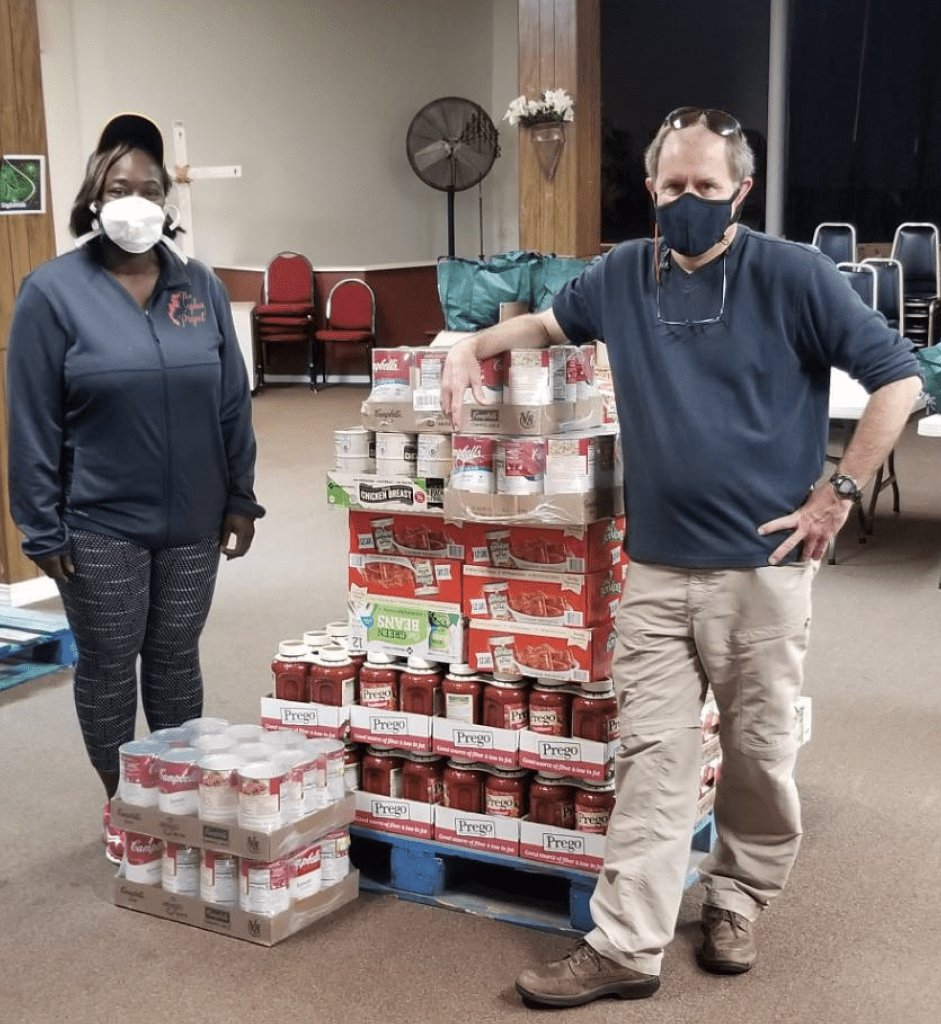
In collaboration with the St. James African Methodist Episcopal Church, (http://www.stjamesstl.org/) located in The Ville area of St. Louis, our initial summer program changed to a different type of assistance. We worked with The Vile Community Development Foundation to support a new food bank run out of St. James Church. with six food shipments from April to July.
To continue our education program, MGI ran a virtual summer program for seven high school students from Jennings Senior High School and Mary Institute and St. Louis Country Day School (MICDS). They participated in a literature-based review on viruses, how viruses infect humans, viral evolution, and vaccine development. A regular discussion between teachers and students occurred over 6 weeks starting early July and ending the middle of August. The students were taught by Ph.D., MD-PhD, and MD students providing a great perspective as a student themselves.
Learn about the national SEPA program, supported by the National Institute of Health here.
